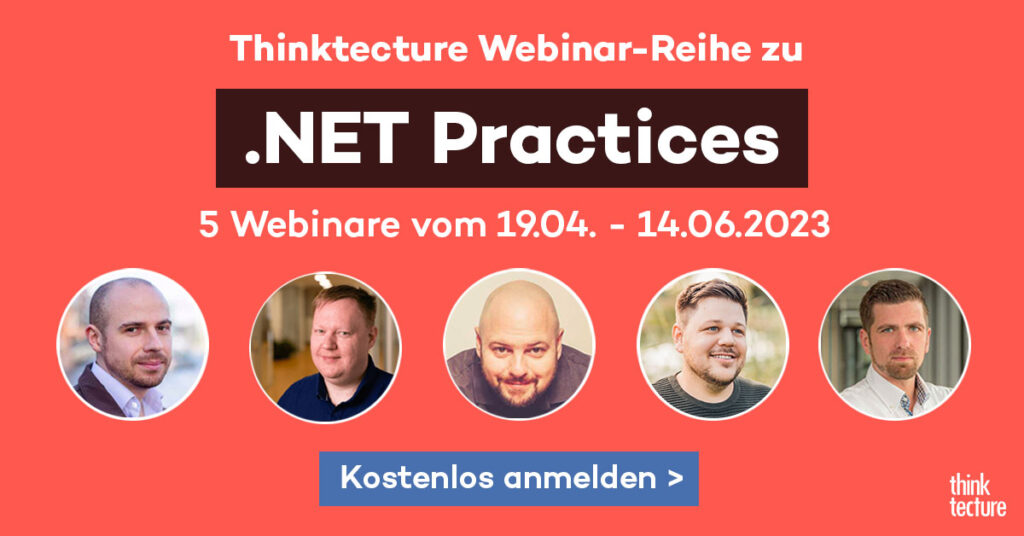- 10:30 Uhr
- Thinktecture Team
Webinar: SPAs & APIs mal anders: gRPC Code-First mit Blazor WebAssembly & ASP.NET Core 7
Ein einziges .NET Interface für Client & Server genügt, um aus einer Blazor WebAssemby SPA mit serverseitigem .NET Code über gRPC Code-First zu reden - und das auch noch verdammt schnell!
Wie in allen anderen browserbasierten Single-Page-Application (SPA) Frameworks, ist Blazor WebAssembly JSON-over-HTTP (über Web- oder REST-APIs) die bei weitem häufigste Methode, um Daten auszutauschen und serverseitige Vorgänge auszulösen.
Warum sollte man das ändern? Nun, es gibt Gründe - vor allem wenn man in einem geschlossenen System ist und .NET sowohl im Frontend als auch im Backend einsetzt.
In diesem Webinar zeigt euch Patrick Jahr anhand einer Beispielanwendung wie ihr eure Daten mit gRPC bzw. gRPC-Web zwischen dem Backend und Frontend jenseits von REST austauschen könnt - und das alles in .NET & C#!
Unsere erfahrenen Spezialisten Pawel Gerr, Sebastian Gingter, Boris Wilhelms, Patrick Jahr und Thorsten Hans beschäftigen sich in den Sessions mit unterschiedlichen .NET Practices. Hier finden Sie alle Webinare.
Moderation

Gøran Homberg
Gøran Homberg ist Consultant bei Thinktecture und arbeitet mit unseren Kunden bzgl. deren Anforderungen, Projektansätzen und zugehörigem Projekt-Management.
Agenda
- Warum gRPC bzw. gRPC-Web?
- Contract First vs Code First in .NET
- Single Point of Interface
- Vom Backend zur SPA
- Fazit
Material & Video zu "SPAs & APIs mal anders: gRPC Code-First mit Blazor WebAssembly & ASP.NET Core 7"
Links aus dem Webinar:
Sie wünschen sich Unterstützung durch unsere Experten in Ihrem Projekt?
Slidedeck zu "SPAs & APIs mal anders: gRPC Code-First mit Blazor WebAssembly & ASP.NET Core 7"
Kommende Webinare: jetzt kostenlos anmelden
No results found.
Aktuelle Webinar-Aufzeichnungen
Christian Liebel | 14.05.2025 | 10:30 Uhr
Daniel Sogl | 30.04.2025 | 10:30 Uhr
Weitere Artikel zu .NET Core, ASP.NET Core, Blazor WebAssembly, gRPC, SPA


Advanced Value Object Patterns in .NET


Discriminated Unions in .NET: Modeling States and Variants


Smart Enums in .NET: Integration with Frameworks and Libraries


Value Objects in .NET: Enhancing Business Semantics


Pattern Matching with Discriminated Unions in .NET





